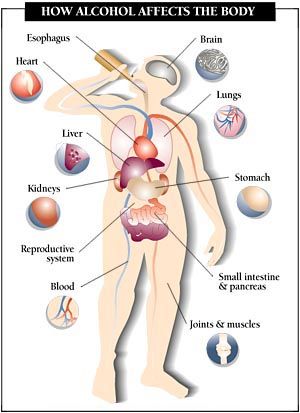Introduction
Drugs and alcohol abuse is becoming increasingly prevalent among students, making it crucial for educators to be well-versed in recognizing and addressing these issues in school. As an educator, understanding the dynamics of drugs and alcohol use can help you support your students better. Here are seven things every teacher needs to know about drugs and alcohol use.
1. Early Exposure and Intervention is Key
Research has shown that early exposure to drug education can help prevent substance abuse later on in life. It’s essential for teachers not only to provide accurate information but also create an open environment where students feel comfortable discussing this topic. Early intervention can decrease the likelihood of students abusing drugs or alcohol.
2. The Signs of Substance Abuse May Vary
Teachers should be able to identify potential signs of substance abuse, which can differ from student to student. Some common signs include a sudden decline in academic performance, unusual behavior changes, poor attendance, constant fatigue or listlessness, persistent smell of alcohol or smoke, erratic mood swings, or secretive behavior.
3. Common Influencing Factors
Understanding the underlying factors contributing to substance abuse can help teachers address this issue better. These factors can include family environment, peer pressure, mental health issues, low self-esteem, and early experimentation with drugs or alcohol without proper guidance or supervision.
4. The Impact of Addiction on Academic Success
Substance addiction can adversely affect a student’s academic performance, leading to poor grades, erratic attendance, lack of motivation or focus on schoolwork, and disinterest in once-enjoyed extracurricular activities.
5. The Importance of a Supportive School Environment
A school environment that fosters an atmosphere of acceptance, empathy, and support is vital in helping students overcome their addiction problems. Teachers should encourage open communication between students and school staff while also implementing anti-drug campaigns and other prevention strategies.
6. The Necessity of Collaboration
Teachers alone cannot tackle the issue of drug and alcohol abuse. Effective intervention requires collaboration among educators, administrators, counselors, parents, and community members to provide support for affected students. Schools should create a coordinated approach to address substance abuse in their communities.
7. Referring Students for Professional Help
In some cases, teachers may recognize that a student requires professional help beyond what the school can provide. Referring students to professional counseling or rehabilitation services can be an essential step in their path towards recovery.
Conclusion
Understanding the complexities surrounding drugs and alcohol use is incredibly important for every teacher. By educating themselves about this issue and taking steps to prevent, identify and address substance abuse in their classrooms and schools, teachers can make a significant impact on the lives of their students.





